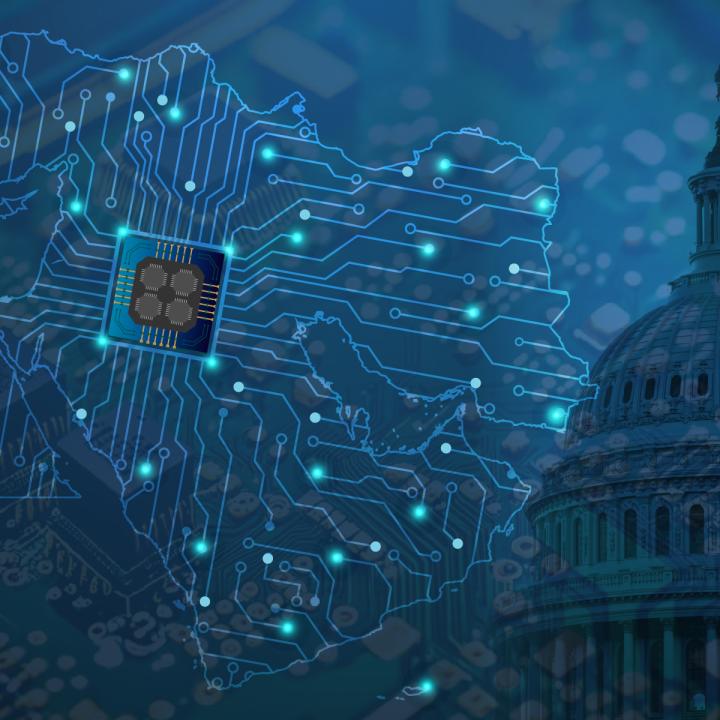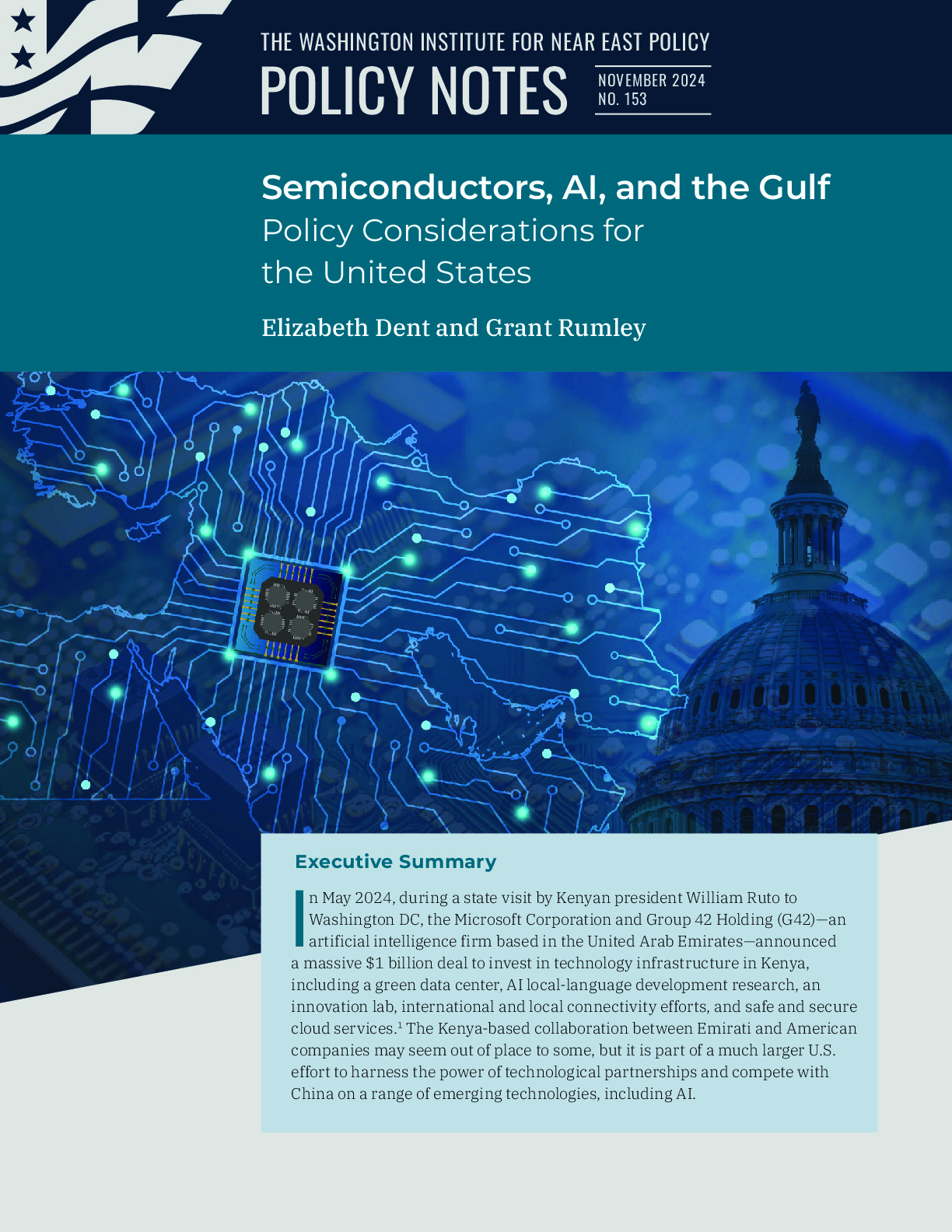
- Policy Analysis
- Policy Notes 153
Semiconductors, AI, and the Gulf: Policy Considerations for the United States

In seeking to bolster partnerships and simultaneously protect U.S. technology, officials will need to navigate export options ranging from permissive to restrictive.
In May 2024, Microsoft and the Emirati firm G42 announced a $1 billion deal to invest in technology infrastructure in Kenya as part of a larger arrangement aimed at harnessing the power of such partnerships. The Kenya initiative—which includes a green data center, AI local-language research, cloud services, and other components—reflects both the promise and peril of integration in today’s era of great power competition. In the Gulf, where countries like Saudi Arabia and the UAE have made AI advancement central to their national development strategies, the United States will need to determine how best to provide the technology necessary for deepening cooperation while ensuring that an overprotective stance does not drive countries to the markets of adversaries.
In this timely Policy Note, Elizabeth Dent and Grant Rumley describe how the current debate focuses on semiconductors, which are essential components for advanced computing and AI. They proceed to analyze how U.S. policymakers can navigate a range of options from permissive to restrictive when considering the export of semiconductors to the Middle East, especially Gulf countries.





